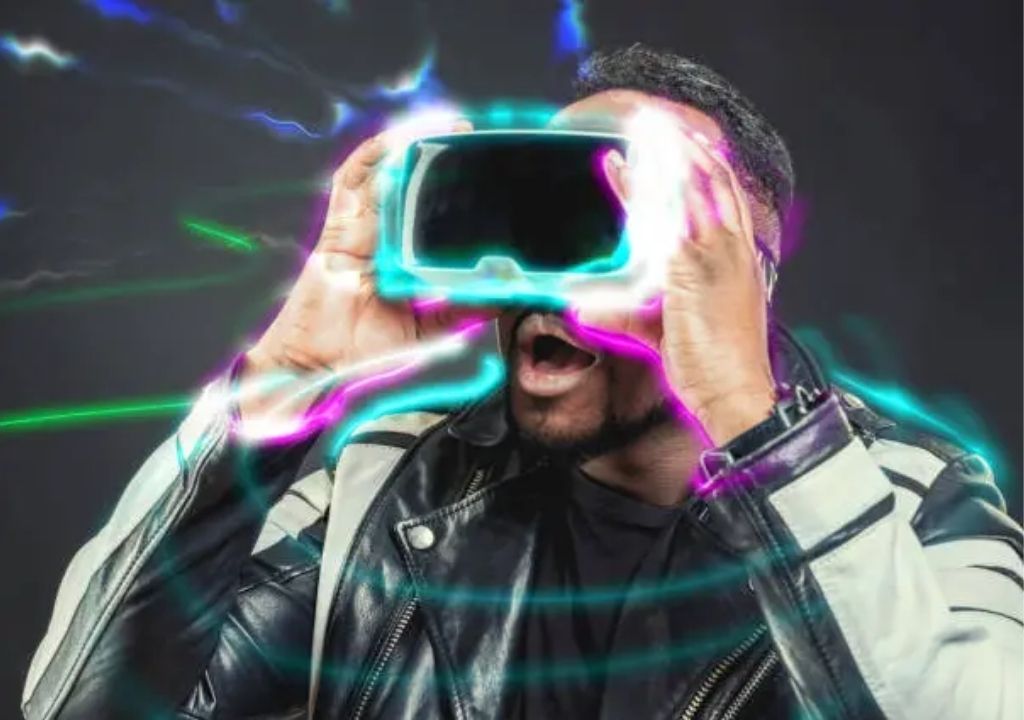Meta Description: Explore the latest gaming trends and innovations of 2025, including advancements in AI, VR, cloud gaming, and more, transforming the gaming landscape.
Introduction
The gaming industry has undergone a remarkable transformation over the past decade. As we step into 2025, it’s evident that technological advancements and innovative trends are reshaping the way we play, interact, and perceive games. This article delves into the pivotal developments influencing the gaming world today.
1. The Rise of AI in Gaming
1.1 AI-Generated Content
AI is now capable of generating intricate game environments, levels, and even entire narratives. Tools like Microsoft’s Muse have been introduced to assist designers by producing AI-generated gameplay videos, streamlining the creative process.
1.2 Intelligent NPCs
Non-Player Characters (NPCs) have evolved from simple scripted entities to intelligent beings capable of learning and adapting. This evolution offers players more dynamic and unpredictable interactions, enriching gameplay experiences.
2. Virtual and Augmented Reality Advancements
2.1 Immersive VR Experiences
VR technology has progressed, providing players with lifelike environments and tactile feedback. Devices like the Apple Vision Pro are exploring enhancements to their VR capabilities, potentially integrating dedicated controllers to offer more immersive gaming experiences.
2.2 AR in Mobile Gaming
AR has seamlessly integrated into mobile platforms, allowing games to blend digital content with the real world. This fusion offers unique experiences, such as location-based games and interactive storytelling.
3. Cloud Gaming: The Future of Accessibility
3.1 Benefits of Cloud Gaming
By streaming games directly from servers, players can enjoy high-quality experiences on various devices without significant downloads or installations.
3.2 Major Players in Cloud Gaming
Companies like NVIDIA and Microsoft have launched cloud gaming services, making a vast library of games accessible to a broader audience.
4. Cross-Platform Play and Its Impact
4.1 Breaking Platform Barriers
Games supporting cross-platform play enable friends to connect regardless of their chosen hardware, fostering a more inclusive gaming community.
4.2 Community Building
This inclusivity strengthens communities, as players can collaborate and compete without restrictions, leading to richer multiplayer experiences.
5. Esports: A Mainstream Phenomenon
5.1 Growth of Esports Tournaments
Major tournaments now attract millions of viewers worldwide, with prize pools rivaling traditional sports events.
5.2 Career Opportunities in Esports
Beyond players, esports has opened avenues for commentators, analysts, coaches, and event organizers, contributing to a robust industry ecosystem.
6. Mobile Gaming: Dominating the Market
6.1 Casual vs. Hardcore Mobile Games
The spectrum of mobile games ranges from casual titles to complex experiences that rival console games, catering to diverse player preferences.
6.2 Monetization Strategies
Developers employ various monetization methods, including in-app purchases and advertisements, to generate revenue while keeping games accessible.
7. The Emergence of Blockchain in Gaming
7.1 NFTs and In-Game Assets
Non-Fungible Tokens (NFTs) allow players to own unique in-game items, which can be traded or sold, adding a layer of value and personalization.
7.2 Decentralized Gaming Platforms
Blockchain enables decentralized platforms where players have more control over game development and governance, fostering community-driven projects.
8. Indie Games: Creativity Unleashed
8.1 Success Stories
Indie games have achieved critical and commercial success, proving that innovation and storytelling can triumph without massive budgets.
8.2 Challenges Faced by Indie Developers
Despite successes, indie developers often face hurdles like limited resources and market visibility, requiring resilience and community support.
9. Gaming Hardware Innovations
9.1 Next-Gen Consoles
Sony, Microsoft, and Nintendo continue to push the limits with next-generation consoles featuring faster load times, improved graphics, and enhanced AI capabilities.
9.2 PC Hardware Developments
Advancements in GPUs and processors have elevated PC gaming, making ray tracing and high refresh rates more accessible to a wider audience.
10. Social Interaction in Modern Games
10.1 In-Game Communities
Multiplayer games have integrated social features, such as voice chat, clans, and live events, fostering deeper player connections.
10.2 Streaming and Content Creation
Platforms like Twitch and YouTube Gaming have transformed how players engage with games, turning content creation into a lucrative career path.
11. The Role of Storytelling in Games
11.1 Narrative-Driven Games
Games like The Last of Us and Cyberpunk 2077 showcase the power of storytelling, drawing players into immersive, emotionally engaging worlds.
11.2 Player Choice and Multiple Endings
Branching narratives allow players to shape the story, increasing replayability and personal investment in the game world.
12. Accessibility in Gaming
12.1 Adaptive Controllers
Companies like Microsoft have developed adaptive controllers, ensuring gaming is accessible to individuals with disabilities.
12.2 Inclusive Game Design
Developers are prioritizing features like customizable difficulty settings and colorblind modes, making games more inclusive.
13. The Environmental Impact of Gaming
13.1 Energy Consumption
High-end gaming setups consume significant energy, prompting discussions about sustainable gaming practices.
13.2 Sustainable Practices
Developers and hardware manufacturers are investing in energy-efficient technology and eco-friendly initiatives.
14. Regulation and Legislation in Gaming
14.1 Loot Boxes and Microtransactions
Governments worldwide are scrutinizing loot boxes, debating whether they constitute gambling.
14.2 Age Ratings and Content Warnings
Regulatory bodies ensure games are appropriately rated to protect younger audiences.
15. The Future of Game Development
15.1 Procedural Generation
AI-driven procedural generation is being used to create vast, unique game worlds dynamically.
15.2 Collaborative Development Platforms
Cloud-based game development tools are allowing remote teams to collaborate seamlessly.
16. Educational Games: Learning Through Play
16.1 Gamification in Education
Educational institutions are integrating gaming elements into learning to enhance engagement and retention.
16.2 Serious Games for Skill Development
Games designed for training purposes are being used in fields like medicine, aviation, and business.
17. The Psychological Effects of Gaming
17.1 Positive Impacts
Gaming can improve cognitive skills, problem-solving abilities, and social interactions.
17.2 Addressing Gaming Addiction
While gaming offers benefits, excessive play can lead to addiction, prompting discussions on responsible gaming habits.
Conclusion
The gaming industry is evolving at an unprecedented pace, driven by technological advancements and shifting player expectations. Whether through AI-driven content, immersive VR experiences, or the rise of blockchain gaming, the future of gaming promises to be more inclusive, innovative, and engaging than ever before.

